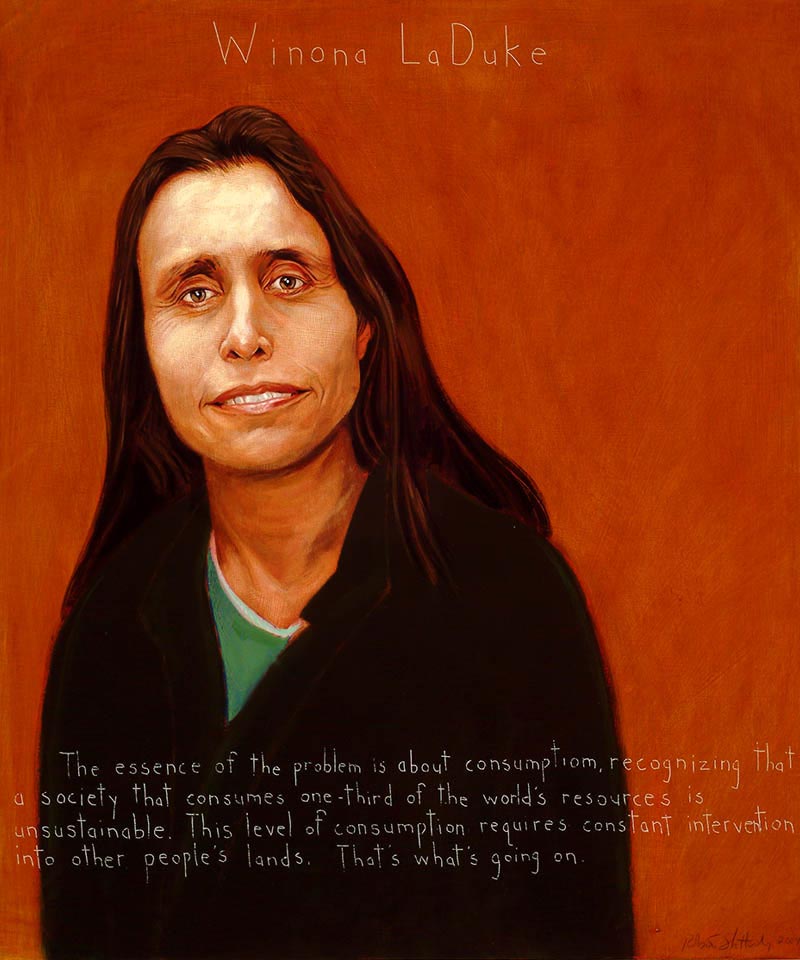
Winona LaDuke
Native American Activist, Environmentalist, Writer : b. 1959
“The essence of the problem is about consumption, recognizing that a society that consumes one third of the world’s resources is unsustainable. This level of consumption requires constant intervention into other people’s lands. That’s what’s going on.”
Biography
Winona LaDuke grew up in Los Angeles, California. She is an enrolled member of the Mississippi Band Anishinaabeg of the White Earth reservation in northern Minnesota. Her father was an actor in westerns as well as an Indian activist. Her mother was a Jewish art professor. She credits her parents for passing the spirit of activism on to her. LaDuke became involved in Native American environmental issues after meeting Cherokee activist Jimmy Durham as a student at Harvard. She began making a political name for herself at age 18 when she addressed the United Nations on Indian issues.
After graduating from Harvard in 1982 with a bachelor’s degree in native economic development, LaDuke moved to White Earth. There, she founded the White Earth Land Recovery Project to reclaim Anishinaabeg lands that had been promised by an 1867 federal treaty but had been slowly stolen and parceled by the US government at the behest of the logging industry. Although LaDuke often found herself embroiled in losing legal battles, she persevered, securing grants and winning a Reebok Human Rights Award. With these funds, she and White Earth have reclaimed 1,000 acres and hope to acquire 30,000 more in the next 15 years.
The challenge is huge. More than 90 percent of White Earth’s original 837,000 acres remain in the hands of non-Indians. LaDuke says if a people do not have control of their land they do not control their destiny.
In 1994, Time magazine named LaDuke one of the nation’s 50 most promising leaders under the age of 40. Today, she is known as a voice for American Indian economic and environmental concerns throughout the United States and internationally.
LaDuke has served on the boards of the Indigenous Women’s Network and Greenpeace USA. She is founding director of both the White Earth Land Recovery Program and Honor the Earth, a national Native American foundation. She ran as the Green Party’s vice presidential candidate in l996 and 2000. Her books include Last Standing Woman (fiction), All Our Relations, a Winona LaDuke Reader (nonfiction), and In the Sugarbush, a children’s book.
Programs
Americans Who Tell the Truth (AWTT) offers a variety of ways to engage with its portraits and portrait subjects. Host an exhibit, use our free lesson plans and educational programs, or engage with a member of the AWTT team or portrait subjects.

Education
AWTT has educational materials and lesson plans that ask students to grapple with truth, justice, and freedom.

Exhibits & Community Engagement
AWTT encourages community engagement programs and exhibits accompanied by public events that stimulate dialogue around citizenship, education, and activism.